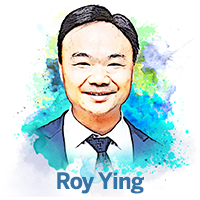The recent news that Judd Trump, the world’s number-one ranked snooker player, has chosen Hong Kong as his future home under the Quality Migrant Admission Scheme (QMAS) prompts an important question: “What’s in it for Hong Kong, and what more can be done?”
 Another snooker star, Ronnie O’Sullivan, who became a Hong Kong resident a few months earlier, remarked that Trump’s move is not surprising, given the city’s attractive tax policies. Indeed, with the UK planning to implement tax reforms in April 2025 that will require British nationals to pay taxes on worldwide earnings, Hong Kong presents a timely and practical alternative.
Another snooker star, Ronnie O’Sullivan, who became a Hong Kong resident a few months earlier, remarked that Trump’s move is not surprising, given the city’s attractive tax policies. Indeed, with the UK planning to implement tax reforms in April 2025 that will require British nationals to pay taxes on worldwide earnings, Hong Kong presents a timely and practical alternative.
Trump and O’Sullivan are not just professional athletes; they are also influential figures with millions of social media followers worldwide. Their experiences in Hong Kong — whether hiking Dragon’s Back, dining at Michelin-starred restaurants, or shopping in Causeway Bay — showcase the city’s unique charms to their extensive fan bases around the world. As long as they are spending time in Hong Kong, their actions are the best kind of engaging content that positions them as de facto global ambassadors, promoting the city as both a tourism destination and an ideal place for permanent residency. Their applications have already attracted the attention of other world-class snooker players to consider permanent residency in Hong Kong. Given that these players often travel with their families for competitions, discussions about acquiring permanent residency via the QMAS will likely be a common topic within their social circles.
The final question: Do these top professionals intend to reside in Hong Kong, or are they primarily motivated by tax advantages? To address this concern, some form of checks and balances may be necessary, as long as they don’t create long delays. A straightforward solution could involve requiring these individuals to contribute to local culture, the economy or education, ensuring their commitment to staying in Hong Kong
The second question: How can we attract more top athletes to consider Hong Kong? The first step must be to provide them with opportunities to experience what the city has to offer. For athletes, their job is to compete in sporting events. Hence, it is recommended that the Hong Kong Special Administrative Region government should focus on sponsoring, facilitating or co-organizing major local sporting events, whether snooker, golf, tennis, or horse racing. Such events present ideal occasions for top athletes to visit. Furthermore, the government could consider offering incentives, perhaps through the Mega Arts and Cultural Events Fund program, to organizers to “make time” for these athletes to explore Hong Kong as both a tournament host city and a potential future home for their families. Yes, commercial activities may attract them to come, but it is the personal touch that leaves a lasting impression. For instance, Trump’s QMAS application was influenced by his girlfriend, Maisy Ma, a former championship figure skater from Hong Kong. O’Sullivan was approached by HKSAR’s director of immigration, Benson Kwok Joon-fung, a fellow snooker enthusiast.
In addition to professional athletes, Hong Kong stands to gain from attracting high-performing individuals from many other sectors, including academia, technology and entrepreneurship. For instance, Nobel Prize-winning scholars could significantly enhance the research output of Hong Kong’s universities and elevate their global rankings. Similarly, tech pioneers and business leaders could strengthen the city’s status as a hub for innovation and finance. As a member of the academic community and co-chair of the Hong Kong Institute of Human Resource Management, I commend the HKSAR government’s proposed proactive effort to attract top talent worldwide through the enhanced QMAS.
The third question: How do we compile this list of top talent? I recommend that the government consults major employers in targeted industries within the proposed “eight centers” to create a list of potential candidates. In academia, for example, many professors in Hong Kong have personal connections with leading scholars at top universities around the world, and know what it would take for them to consider relocation. Such networks likely exist in other sectors as well, where organizational leaders could play an effective role in attracting these professionals to Hong Kong. Similar to the strategy for attracting top athletes, the government should consider investing in the sponsorship and facilitation of more impactful mega-events to encourage their visits. During these events, their local friends can address key concerns regarding family relocation, such as career prospects, accommodation, social life, education, and of course the favorable tax environment.
The final question: Do these top professionals intend to reside in Hong Kong, or are they primarily motivated by tax advantages? To address this concern, some form of checks and balances may be necessary, as long as they don’t create long delays. A straightforward solution could involve requiring these individuals to contribute to local culture, the economy or education, ensuring their commitment to staying in Hong Kong. I appreciate the government’s efforts to make this a reality, and employers will be eager to assist in this initiative. I look forward to seeing more details when the program is announced later this year.
The author is a senior lecturer, the Hang Seng University of Hong Kong; co-chair, Advocacy and Policy Research Committee, Hong Kong Institute of Human Resources Management.
The views do not necessarily reflect those of China Daily.


